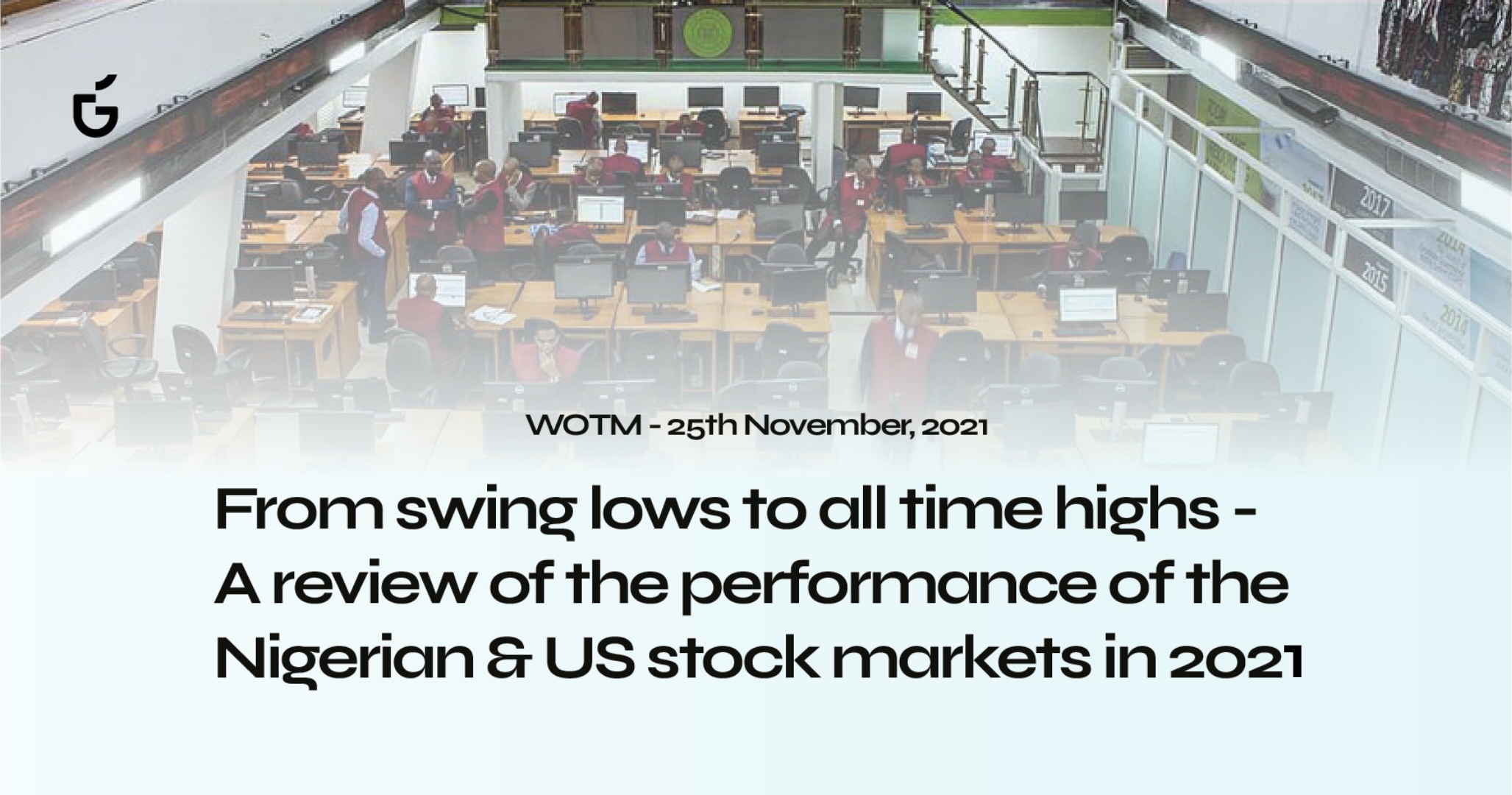 Africa
AfricaUnderstanding how companies are valued – A look into the MainOne acquisition
15 December, 2021
01 September, 2021 | 4 MINS READ
The Story
In what seems to have become regular news, two major announcements were made last week about an acquisition and a fundraise in the Nigerian digital space.
The first was about the acquisition of a Ghanaian mobility start-up Stabus by its Nigerian counterpart Plentywaka. Plentywaka’s acquisition of Stabus comes after it got $1.2mn in seed funding from various angel investors around the world.
In the same week, Opay a Nigerian mobile payment platform secured $400mn in a fundraise led by SoftBank. This fund round brought the company’s value to $2bn making it a Unicorn (start-ups valued at over a billion dollars).
To understand how start-ups are funded let’s shed light on the different ways of funding companies.
What is Angel Investing, Venture Capital & Private Equity?
Angel investing is an investment in startups at a very early stage. Angel investors could be individuals or companies who seek to invest in early-stage businesses believed to have high growth potentials. Angel investors actively monitor the activities of the companies they invest in. Notable angel investors in Africa include LeadPath Nigeria, Spark Capital, Microtraction to mention a few.
Venture Capital (VC) is a type of funding provided by investors to early-stage or emerging companies that has shown some growth potential but lack the funds to scale. Venture capital firms or funds may not just provide funding, they sometimes offer their managerial and technical expertise to the businesses they invest in. VC is sometimes considered a form of private equity investment. Examples of VC firms or funds in Africa include Ventures Platform, Future Africa, Chanzo Capital.
Private Equity is a type of private funding in matured companies that has shown growth over the years and have consistently grown profit. It is done by either investing directly in the company or through a buyout. Known private equity firms include Actis, African Capital Alliance, Quantum Capital, etc.
What Distinguishes Them?
To understand the difference in each of these types of investing, we’ll compare them in terms of the stages in which they invest in businesses, the size of their investment, risk & return profile, and the method of investment they employ.
Angel investors invest in businesses very early in the life of the business mostly at stages when revenue is yet to be generated. This fundraise is usually called pre-seed. They make their investment decisions based on their belief in the entrepreneurial abilities of the founders, the viability of the product, and the business model in place. A notable pre-seed fundraise in Africa would be Okra’s $1mn pre-seed round in April 2020, 3 months after commencing operations.
Venture Capital firms or funds invest in businesses a little later than angel investors. They invest in businesses that have revenue or a growing client base but do not have the required capital to scale. The $170mn raised by Flutterwave in 2020, is an example of venture capital funding.
Private Equity deviates from angel investing and venture capital as it is the financing of established companies with profit margins and stable cash flows. Actis’ investment in Diamond Bank in 2007 and African Capital Alliance’s investment in Union Bank in 2011 are examples of private equity investment.
The three also differ in the size of their investment.
Angel investors typically invest a minimum of $10,000 to $100,000 with no definite cap. Fundraises below $1mn are mostly done by angel investors.
Venture capital funding amount is not cast in stone, it can range between $1mn and billions of dollars. It depends on the type of business, the industry, and a number of other factors.
Private equity financing like venture capital can range between $5mn and several billion dollars. Depending on the funding capacity of the private equity firm, the business being invested in, and a few other factors.
Investors that hold assets for a long period of time bear more risk. In this scenario, Angel investing is a lot risker than venture capital and private equity as they literarily are there from the very beginning of the business. Private equity firms that use leveraged buyouts (LBOs) to fund their investing activities can be riskier than angel investing if they are over-leveraged. LBOs are however rare with African private equity financing.
As expected, a higher risk demands higher returns and so it’s not strange to see angel investors get returns as high as 100x from the profitable companies in their portfolio. Venture capital firms can earn as high as 10x their investments from successful fundings, while private equity firms seek 20% return from their financing activities.
All three invest via equity but with different shades of equity.
Angel investors fund early-stage companies via equity as these companies do not have the capacity to bear any form of debt. In rare cases, an instrument called Simple Agreement for Future Equity (SAFE) is a promise to give very early-stage investors shares of the company in the future at a predetermined price.
Venture capital funds invest also via ordinary equity, preference shares, or convertible debt. Preference shares are superior to ordinary shares as they have rights and privileges that ordinary shareholders do not have. Convertible debt is a debt instrument that can be converted to equity in the future if the company finds it difficult to repay the debt. Depending on the size of the convertible debt, the venture capitalists can potentially take over the companies they invest in. A private equity firm (Alta Semper) took over Healthplus in 2020 as it had a controlling stake in the company.
Private equity firms invest via equity and Leverage Buy-Outs (LBOs). LBO is basically borrowing money from different sources and adding a little equity from the private equity firm to fund a private equity investment. This increases the potential gains of the private equity firm from the investment, but it also increases its exposure to risk as it may be difficult repaying the monies borrowed should the investment fail. LBOs are rare in Africa.
Which of These Forms of Investing is Best for an Investor?
As an investor looking to take a position in start-ups and private companies, it is important you understand the risk and reward of each form of investing while also taking into consideration your ability and willingness to take risks and your financial strength.
For investors who have enough capital, expertise, and a high-risk appetite, angel investing will be ideal. But investors who may not have as much financial strength and knowledge on how investing in start-ups work, venture capital funds would work well. For investors with deep pockets but who do not have the risk appetite and time for angel investing, private equity fits best.
 Africa
Africa15 December, 2021
 Africa
Africa09 December, 2021
Join the biggest
investment club in Nigeria.